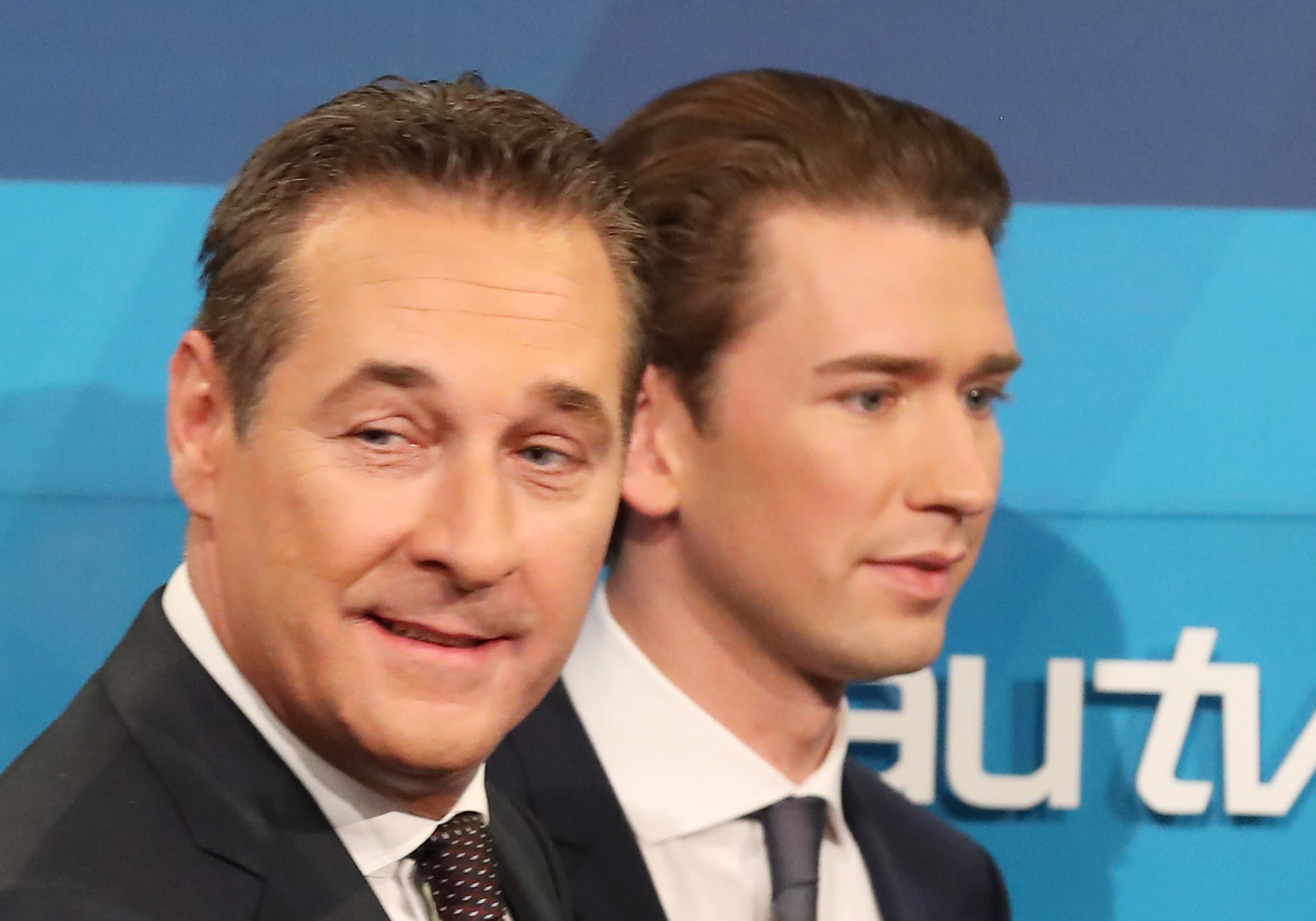Austrian far-right and conservatives begin coalition talks to form a government together
Austrian People’s party (OVP) passed over centre-left social democrats to seek a deal with anti-immigrant Freedom party of Austria (FPO), founded by former Nazi officers

Austria’s conservatives and far-right will hold coalition negotiations with the aim of forming a new joint government, the two sides confirmed on Monday.
Sebastian Kurz, leader of the OVP, which won the most votes in last week’s elections, announced on Monday he would invite the FPO into government ahead of his other possible coalition partner, the centre-left Social Democrats (SPO).
Mr Kurz, Austria’s youngest would-be Chancellor, announced on Monday that he had “decided to invite Heinz-Christian Strache and the FPO today to take part in coalition talks”.
He added that the two parties had shown “a will to bring about change in Austria together”.
Mr Strache, who leads the party which was founded in the 1950s by former Nazi officers, confirmed he would enter talks with the OVP – but said any government would have to implement his party’s policies.
“Being part of the government is not an end in itself, and only makes sense if we can implement our correct and important policies,” he said. “Therefore no one should think that we will make it easy for the OVP.”
Mr Kurz has said his government will be pro-EU and not take on the eurosceptic policies of the FPO – meaning the two parties will have to find other common ground to cooperate on.
This raises the prospect that the government might adopt some of the FPO’s anti-Muslim proposals, block refugees from travelling to Europe and crack down on people seeking asylum.
Mr Kurz has already moved his party hard to the right on immigration, leaving little space between the two groups.
The FPO wants laws to stop Islamic symbols being displayed in public – going beyond existing bans on veils, which Austria has already implemented. It says these rules could be modelled on existing laws banning Nazi symbols that were introduced after World War II.
The party says that Islam “has no place in Austria”.
If the talks fail, the FPO could do a deal with the Social Democrats, which ahead of this election dropped a longstanding policy of not doing deals with the far-right.
The last time the FPO entered government, in 2000, other EU states briefly imposed diplomatic sanctions on Austria with the aim of forcing the extremists from government.
The sanctions were short-lived, however, after warnings that they could be counter-productive and stoke up nationalist sentiment in the country.
Mr Kurz’s conservative OVP won 31.5 per cent of the vote, while the centre-left SPO came second with 26.9 per cent. The FPO came third with 26 per cent.
Before the election, the OVP and SPO were in a grand coalition – but that government collapsed amid acrimony earlier in the year.
Join our commenting forum
Join thought-provoking conversations, follow other Independent readers and see their replies
Comments
Bookmark popover
Removed from bookmarks